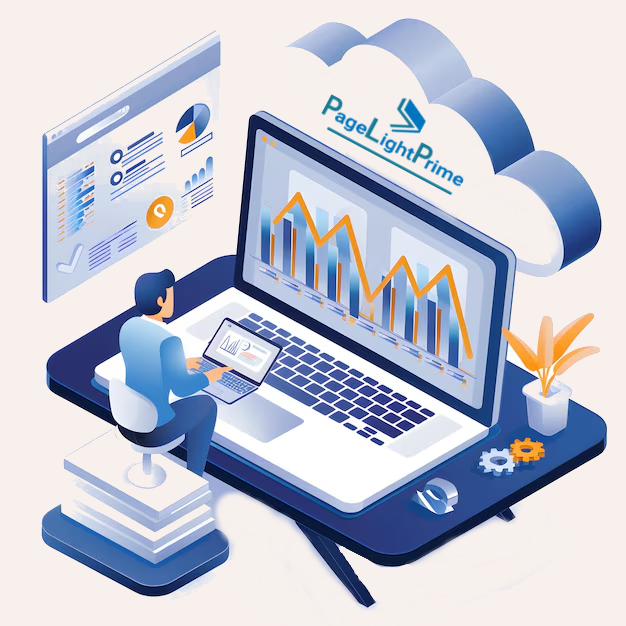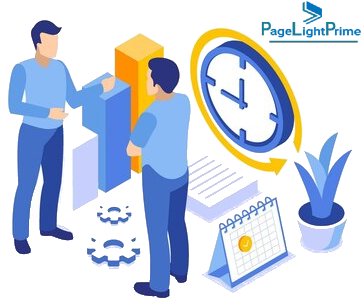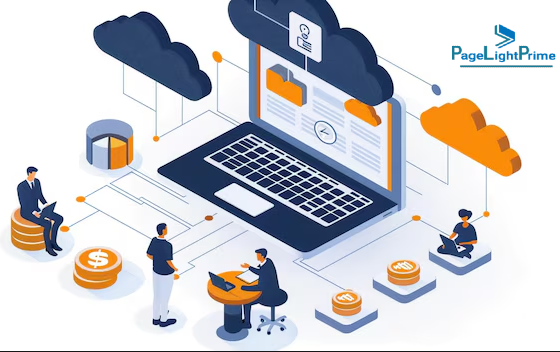How to Transition to Cloud Legal Accounting: A Guide for Law Firms
The legal industry is rapidly embracing cloud technology, transforming how law firms manage their financial processes. Switching to cloud-based legal accounting offers a more efficient, secure, and scalable solution compared to traditional methods. This guide outlines the key steps and considerations to ensure a smooth transition to the cloud.
Written by Knowledge Team, posted on Sep 11, 2024

Understanding Traditional Accounting Methods for Law Firms
Traditional accounting in law firms typically involves manual processes and on-premises systems, which can lead to inefficiencies and security vulnerabilities. While these methods have been standard for years, they often result in slow processes, higher costs, and more frequent errors.
The following are the common challenges with traditional accounting.
1
Manual Data Entry Errors
Repetitive tasks, such as billing and reconciliation, increase the risk of mistakes.
2
Limited Accessibility
On-premises systems restrict access to financial data, hindering decision-making outside the office.
3
High Overhead Costs
Maintaining physical servers and outdated software requires constant IT support and incurs ongoing costs.
4
Scalability Issues
Traditional systems make it hard to scale as your firm grows.

Benefits of Cloud-Based Legal Accounting
Transitioning to cloud legal accounting software resolves these challenges and offers multiple benefits.
1
Increased Efficiency and Productivity
Cloud-based accounting automates time-consuming tasks like invoicing, reporting, and trust accounting, freeing up staff to focus on higher-value tasks.
2
Enhanced Collaboration and Accessibility
With cloud systems, attorneys and staff can access real-time financial data from any location and device. This facilitates better collaboration and quicker financial decisions, especially in remote working environments.
3
Real-Time Data and Analytics
Cloud platforms provide immediate access to key financial metrics, helping firms make informed decisions. Detailed reporting tools allow tracking of billing, expenses, and profitability in real-time.

Cost-Benefit Analysis of Cloud Legal Accounting
Quantifying Savings
Law firms can reduce overhead by eliminating on-premises servers and cutting down on IT maintenance costs. Automation also reduces administrative hours spent on manual tasks.
Return on Investment (ROI)
Beyond cost savings, the ROI of cloud accounting includes improved efficiency and accuracy. For instance, firms that switch to cloud accounting report reductions in billing errors and increased cash flow. One firm saw a 20% boost in cash flow after automated invoicing, while another reduced billing errors by 50% by using automated trust accounting.

Choosing the Right Cloud Accounting Software
Selecting the best cloud accounting software is essential to ensure a successful transition.
Key Factors to Consider
1
Scalability and Flexibility
Choose a platform that grows with your firm. Whether small or large, the software should support increasing users, transactions, and practice areas.
2
Integration with Legal Tools
Ensure seamless integration with legal practice management systems, time tracking software, and document management, so financial data syncs smoothly across platforms.

3
Security and Data Privacy
Select a provider with top-tier security features such as:
- Encryption: AES-256 encryption for data at rest and in transit.
- Access Controls: Multi-factor authentication (MFA) to restrict access.
- Disaster Recovery: Regular backups and geographic redundancy to protect against data loss.
Industry Certifications
Look for cloud providers with certifications like SOC 2 or ISO 27001 to ensure they comply with high security standards.

Addressing Common Concerns
Data Security
Some law firms may hesitate to move sensitive financial data to the cloud. However, leading cloud providers use cutting-edge security technologies like encryption, role-based access, and regular security audits to protect your data.
Vendor Lock-In
To avoid being locked into one vendor, choose a provider that supports open data standards, allowing you to export data easily. Review contract terms to ensure flexibility.
Integration Challenges
Select cloud software that supports APIs and is compatible with your existing tools. Solutions like PageLightPrime integrate smoothly with legal tools, reducing manual data entry.

Step-by-Step Transition Process
Data Migration and Conversion
Begin by backing up all financial data. Consider hiring a specialist to handle complex systems. This is also an opportunity to clean and reformat your data before migration.
Training and Adoption
Provide comprehensive training for your staff. Use vendor-provided resources like webinars, tutorials, and support teams to ensure smooth adoption.
Ongoing Support and Maintenance
After the transition, take advantage of your vendor’s 24/7 support to resolve any issues and continue optimizing your workflows.

Case Studies: Results from Law Firms Transitioning to Cloud Accounting
Reducing Billing Errors
A mid-sized law firm cut billing errors by 50% after automating processes with cloud accounting software, improving client satisfaction and payment times.
Improving Cash Flow
Another firm saw a 20% increase in cash flow due to faster invoicing and collections using cloud tools.
Best Practices for Cloud Legal Accounting
Data Security and Compliance
Follow best practices by using encryption, strong access controls, and regular employee training on cybersecurity.
Regular Backups and Disaster Recovery
Ensure your provider has a robust backup and disaster recovery plan, testing these protocols regularly.
Optimize Your Cloud Workflows
Once implemented, continuously optimize your workflows by utilizing automation features and gathering feedback to improve processes further.

PageLightPrime: Cloud Legal Accounting Software for Law Firms
PageLightPrime is built on the trusted Microsoft 365 platform, offering seamless integration with legal tools to enhance efficiency and collaboration for law firms.
Key Features
- Microsoft 365 Integration: Directly integrates with familiar tools like Outlook, Word, and Excel while providing robust security.
- Practice Management Integration: Sync with legal case management software for unified case, billing, and financial management.
- Time Tracking and Billing Integration: Effortless integration with legal time billing solutions and attorney expense tracking software to ensure accurate billing and meet compliance requirements.
- Compliant Trust Accounting: Law firm trust accounting software ensures compliance by automating the tracking of client funds and maintaining accurate records of trust transactions.
No Vendor Lock-In & Data Migration Assistance
PageLightPrime ensures you retain full control over your data with flexible contracts. The platform offers consulting services for smooth data migration from legacy systems like QuickBooks or Xero.

Conclusion: Unlock the Benefits of Cloud Legal Accounting
Transitioning to cloud-based legal accounting can streamline your firm’s financial processes, improve efficiency, and reduce costs. By selecting the right software and following best practices, your firm will achieve long-term success.
Call to Action
“
Ready to transition to cloud-based legal accounting? Start exploring solutions tailored to your firm’s needs and unlock greater efficiency and financial control today!
“
